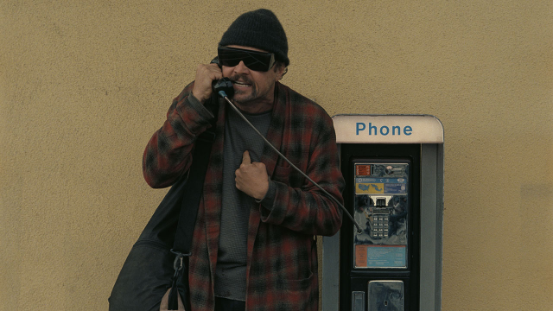
When artists started the next great Spotify exodus around July, spurred by CEO Daniel Ek’s $600 million investment in a German AI military drone company, the general consensus was that it won’t really make much of a difference. The bands who left leaned indie, with decent fanbases. But nothing close to the scale it would take to make more than a little ripple in the water.
Initially, it was King Gizzard and The Lizard Wizard, Deerhoof, and Xiu Xiu who kicked off the exodus around the same time. Leah Senior and David Bridie followed, as did Godspeed You! Black Emperor just last month. Other artists left quietly, or weren’t as publicly reported on outside of local outlets. Now, though, longtime trip-hop figurehead Massive Attack announced their departure. Not just from Spotify, but from all streaming platforms in Israel.
Videos by VICE
Currently only consisting of two original members, Robert “3D” Del Naja and Grant “Daddy G” Marshall, Massive Attack has often been openly critical of government policies and other plaguing issues in the U.K. and abroad. In protest of Daniel Ek’s business dealings with military tech, the duo have asked their label, UMG, to pull their entire catalog.
Massive Attack pull catalog from all streaming platforms in anti-war protest
Massive Attack made a statement in an Instagram post announcing the decision. In several slides, the band explained their reason for pulling their music from platforms that stream in Israel.
“In light of the (reported) significant investments by [Spotify’s] CEO in a company producing military munition drones & Al technology integrated into fighter aircraft, Massive Attack have made a separate request to our label that our music be removed from the Spotify streaming service in all territories,” the post stated.
Massive Attack also showed support for the No Music For Genocide initiative. This collective movement claims more than 400 artists and labels have blocked their work from distribution and streaming in Israel.
Speaking specifically on Spotify, Massive Attack claimed “the economic burden that has long been placed on artists is now compounded by a moral & ethical burden, whereby the hard-earned money of fans & the creative endeavours of musicians ultimately funds lethal, dystopian technologies.”
The band highlighted the Film Workers for Palestine organization. They urged artists to “transfer their sadness, anger and artistic contributions into a coherent, reasonable & vital action to end the unspeakable hell being visited upon the Palestinians hour after hour.”
artists protest spotify in solidarity with palestine, but Ai military Tech company Denies involvement
Helsing, the AI military tech company that Daniel Ek aligned himself with through money and power, denies involvement in the war in Gaza. Specifically, they clarified that their services are only deployed in Europe. They did not deny involvement in the ongoing Russia-Ukraine conflict.
“Currently we see misinformation spreading that Helsing’s technology is deployed in war zones other than Ukraine,” said a Helsing spokesperson per a report from Euro News. “This is not correct. Our technology is deployed to European countries for deterrence and for defence against the Russian aggression in Ukraine only.”
The company also clarified that Helsing and Spotify are “two totally separate companies.” However, Daniel Ek has been a Helsing investor since 2021. Furthermore, the company recently appointed him as chairman. Therefore, his money and influence indeed have deep ties to international conflicts; paper trails do not often lie.
Is leaving Spotify in protest a specific move against Ek’s investments in military technology? Or a broader cultural boycott of Israel? The issue remains nuanced and divisive, even as the moral and ethical implications seem relatively clear-cut. Genocide = bad, right?
Photo by Elena Di Vincenzo/Archivio Elena Di Vincenzo/Mondadori Portfolio via Getty Images



